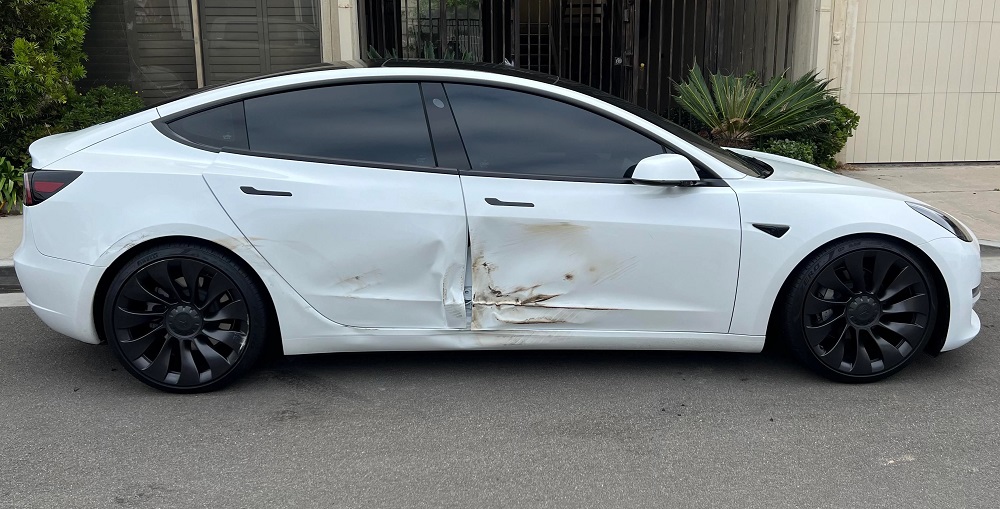Car shopping is a thrilling experience, a journey filled with anticipation and the promise of new adventures on the open road. However, amidst the excitement, a cloud of uncertainty can hover, especially when it comes to the integrity of the vehicle you’re eyeing. One burning question often echoes in the minds of potential buyers: “Can a dealer sell a car with structural damage?” In this comprehensive guide, we will navigate the complex terrain of structural damage, dealership obligations, and arm you with the knowledge needed to make an informed decision.
Understanding the Complexity of Structural Damage
1. Types of Structural Damage
Structural damage can manifest in various forms, ranging from visible dents and misalignments to more concealed issues within the frame. Understanding these nuances is crucial for any potential buyer. Keep an eye out for signs like uneven panel gaps, doors that don’t close properly, or a visibly shifted frame.
2. Impact on Safety and Performance
Beyond aesthetics, structural damage can compromise the safety and performance of a vehicle. The frame provides the structural backbone, ensuring the car’s rigidity and protecting occupants during collisions. Any compromise to this structural integrity poses potential risks, making it imperative to address such issues before purchasing.
The Legal Landscape: Dealership Obligations
3. Regulatory Compliance in the Automotive Industry
Dealerships operate within a regulatory framework designed to protect consumers. When it comes to structural damage, there are specific guidelines in place to ensure fair practices. Dealers must adhere to these regulations, providing accurate information about a vehicle’s condition and history.
4. The Importance of Full Disclosure
Transparency is paramount in any business transaction, and the automotive industry is no exception. Dealers are legally obligated to disclose any known structural damage to potential buyers. This includes details about past accidents, repairs, or any modifications that may impact the car’s structural integrity.
5. Consumer Protection Laws
Consumer protection laws add an extra layer of safeguarding for buyers. These laws vary by jurisdiction but generally empower consumers with the right to accurate information and fair dealing. If a dealer fails to disclose structural damage, they may face legal consequences, ranging from fines to more severe penalties.
Empowering Buyers: Steps to Take
6. Thorough Inspections: Beyond the Surface
A critical step in the car-buying process is a comprehensive inspection. While dealers are obligated to disclose known issues, conducting your examination provides an additional layer of assurance. A trusted mechanic can uncover potential structural issues that might go unnoticed during a casual inspection.
7. Requesting Vehicle History Reports
Vehicle history reports are treasure troves of information, offering insights into a car’s past. These reports detail accidents, repairs, and other events that may have affected the vehicle. Insist on obtaining this document before finalizing any purchase, ensuring you have a clear understanding of the car’s history. (See Also: How to Clean Up Raptor Liner: A Step-by-Step Guide for Effective Maintenance)
8. Evaluating “As Is” Sales
Some dealerships sell cars “as is,” placing the responsibility on the buyer for any post-purchase issues. However, this doesn’t absolve dealers from disclosing known structural damage beforehand. Before agreeing to an “as is” sale, carefully read and understand the terms, and if possible, consult with a legal professional.
9. Deciphering Salvage Titles
Cars with significant structural damage may carry salvage titles. While a salvage title doesn’t necessarily mean you should dismiss the car, it does indicate a history of substantial issues. Understanding the implications and potential challenges associated with a salvage title is crucial before making a decision.
Expert Tips: Navigating Structural Damage When Buying a Car
When it comes to purchasing a car, navigating the potential pitfalls of structural damage requires a keen eye and informed decision-making. To aid you in this journey, here are some expert tips to consider before sealing the deal on your dream car.
**1. Independent Inspections: A Wise Investment
Before committing to a purchase, investing in an independent inspection by a qualified mechanic is a strategic move. This professional assessment can unearth hidden structural issues that may not be immediately apparent, providing you with a comprehensive understanding of the vehicle’s condition.
2. Demand Detailed Documentation
Insist on obtaining comprehensive documentation, including the vehicle’s history report and any records of repairs or modifications. Thoroughly review these documents to uncover any red flags related to structural damage. A well-documented history adds a layer of transparency and builds confidence in your decision.
3. Scrutinize the Frame and Undercarriage
During your inspection, pay close attention to the frame and undercarriage. Look for signs of recent repairs, welding, or irregularities that may indicate structural damage. A careful examination of these crucial components can be instrumental in making an informed assessment.
4. Be Cautious with Salvage Titles
While a salvage title doesn’t necessarily mean you should walk away from a deal, it’s crucial to approach such purchases with caution. Evaluate the extent of the structural damage, the quality of repairs, and the potential impact on the car’s long-term reliability. (See Also: Can You Wash a Car with Dish Detergent? Exploring the Dos and Don’ts)
5. Consult Legal Professionals
If you encounter complex legal terms or are unsure about the implications of certain clauses in the purchasing agreement, seeking advice from legal professionals specializing in automotive transactions can provide invaluable insights. They can help you navigate the legal landscape and ensure you fully understand your rights and responsibilities.
6. Negotiate Fairly with Full Disclosure
If a dealer discloses structural damage, use this information strategically during negotiations. Understanding the true condition of the vehicle gives you leverage to negotiate a fair price reflective of any necessary repairs or potential future issues.
7. Explore Extended Warranties
Considering the potential risks associated with structural damage, exploring extended warranties can offer additional peace of mind. While it might incur an extra cost, an extended warranty can safeguard you from unforeseen expenses related to structural repairs down the road.
8. Stay Informed About Recalls
Stay updated on any recalls related to the make and model you’re considering. Some structural issues may be subject to recalls, and ensuring the vehicle has undergone necessary repairs can prevent future headaches.
9. Trust Your Instincts
In the midst of negotiations and inspections, don’t underestimate the power of your instincts. If something feels off or too good to be true, take a step back and reassess. Trusting your gut can be a crucial factor in making a sound decision.
10. Seek Peer Reviews and Recommendations
Tap into the wealth of online resources and communities where car buyers share their experiences. Peer reviews and recommendations can provide valuable insights into specific models, dealerships, and potential issues related to structural damage.
Navigating the complexities of buying a car with potential structural damage demands a blend of knowledge, caution, and proactive decision-making. By incorporating these expert tips into your approach, you’ll be better equipped to make a well-informed decision and drive away with confidence in your new purchase. (See Also: Removing Duct Tape Residue from Your Car: The Best Methods)
FAQs: Decoding the Mystery of Buying a Car with Structural Damage
Purchasing a car, especially one with potential structural damage, often raises numerous questions. To provide clarity and guide you through this intricate process, we’ve compiled some frequently asked questions along with expert answers.
- Can a dealer legally sell a car with structural damage?
Yes, a dealer can legally sell a car with structural damage, but they are obligated to disclose this information to potential buyers. Failing to do so can lead to legal consequences and penalties. - How can I check for structural damage before buying a car?
Conducting a thorough inspection is crucial. Look for signs such as uneven panel gaps, doors that don’t close properly, and any visible misalignments. Additionally, hiring a trusted mechanic for an independent inspection is a wise investment. - What information should I request from the dealer about the car’s history?
Request comprehensive documentation, including the vehicle history report, records of repairs, and any modifications made. This information can unveil crucial details about the car’s past, including structural repairs. - Are salvage-titled cars always a bad choice?
Not necessarily. While a salvage title indicates past significant damage, it doesn’t automatically make the car a bad choice. Evaluate the extent of the damage, the quality of repairs, and consider seeking professional advice before making a decision. - Can I negotiate the price if the car has structural damage?
Yes, knowing about structural damage provides leverage for negotiations. Use this information to discuss a fair price that accounts for any necessary repairs or potential issues. - Should I consider an extended warranty for a car with potential structural damage?
Considering the risks associated with structural damage, exploring an extended warranty is a prudent move. It can offer additional protection against unforeseen expenses related to structural repairs. - How can I stay informed about recalls related to the car I’m considering?
Regularly check for recalls related to the specific make and model you’re interested in. This information is often available on the manufacturer’s website or through government databases. Ensuring all recalls are addressed adds an extra layer of safety. - What legal rights do I have as a buyer if I discover undisclosed structural damage after purchase?
If you discover undisclosed structural damage after purchase, you may have legal grounds for action. Consult with a legal professional to understand your rights and explore potential remedies, which may include compensation or returning the vehicle. - Are there any warning signs in a vehicle history report that indicate structural damage?
While not explicitly labeled as “structural damage,” look for records of major accidents, extensive repairs, or frame damage in a vehicle history report. These indicators can provide insights into potential structural issues. - How can I protect myself from buying a car with hidden structural damage?
Protect yourself by conducting thorough inspections, obtaining comprehensive documentation, and seeking professional advice. Stay informed, trust your instincts, and don’t hesitate to walk away if something doesn’t feel right.
Navigating the process of buying a car with potential structural damage involves being well-informed and proactive. These frequently asked questions and answers aim to empower you with the knowledge needed to make confident and informed decisions in the car-buying journey.
Conclusion: Navigating the Road to a Reliable Purchase
In conclusion, the legality of a dealer selling a car with structural damage is unequivocally tied to transparency and adherence to regulations. Dealerships are obligated to provide accurate information, but the onus is also on the buyer to exercise due diligence. By understanding the legal landscape, conducting thorough inspections, and demanding transparency, you empower yourself to make informed and confident decisions when navigating the complex world of car buying.
Remember, the road to a reliable used car involves a blend of knowledge, caution, and a willingness to ask the right questions. Armed with these insights, embark on your car-buying journey with confidence and the assurance that you’re making a well-informed choice. Happy driving!



